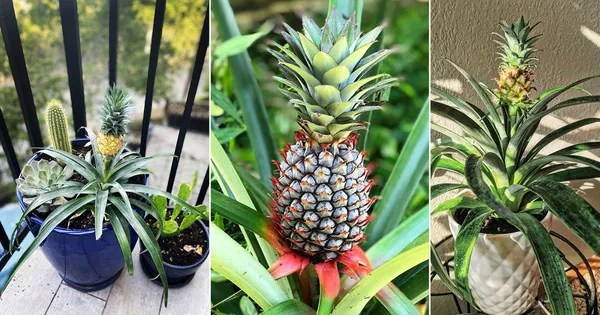When it comes to tropical fruits, pineapple is often celebrated for its vibrant taste and numerous health benefits. For women in Virginia, understanding what pineapple can do for their health is not just a matter of culinary interest, but a potential pathway to improved well-being. This article delves into the various advantages of consuming pineapple, specifically tailored for women, while also exploring the cultural and nutritional significance of this fruit.
Pineapple, scientifically known as Ananas comosus, is more than just a sweet addition to summer salads and tropical drinks. It is packed with vitamins, minerals, and enzymes that can contribute to a woman's overall health. Whether you're looking to enhance your digestion, boost your immune system, or maintain healthy skin, pineapple can play a vital role.
In this comprehensive guide, we will explore the health benefits of pineapple, how it influences women's health in particular, and interesting facts surrounding its consumption in Virginia. With a focus on evidence-based information, this article aims to equip readers with the knowledge to make informed dietary choices.
Table of Contents
- Health Benefits of Pineapple
- Nutritional Content of Pineapple
- Pineapple and Digestive Health
- Immune-Boosting Properties of Pineapple
- Pineapple for Skin Health
- Cultural Significance of Pineapple in Virginia
- How to Incorporate Pineapple into Your Diet
- Conclusion
Health Benefits of Pineapple
Pineapple offers a plethora of health benefits, making it an excellent addition to any woman's diet. Some key benefits include:
- Rich in Vitamins: Pineapple is an excellent source of Vitamin C, which is essential for the immune system.
- Anti-inflammatory Properties: Bromelain, an enzyme found in pineapple, is known for its anti-inflammatory effects.
- Antioxidant Effects: Pineapple contains antioxidants that help combat oxidative stress.
- Weight Management: Low in calories but high in nutrients, pineapple can aid in weight management.
Nutritional Content of Pineapple
The nutritional profile of pineapple is impressive. Here is a breakdown of its contents per 100 grams:
| Nutrient | Amount |
|---|---|
| Calories | 50 |
| Carbohydrates | 13.1 g |
| Fiber | 1.4 g |
| Protein | 0.5 g |
| Vitamin C | 47.8 mg |
| Bromelain | ~80 mg |
Pineapple and Digestive Health
One of the most notable benefits of pineapple is its positive impact on digestive health. The presence of bromelain aids in breaking down protein, facilitating smoother digestion. Here are some ways pineapple contributes to digestive health:
- Prevention of Constipation: The fiber content in pineapple helps regulate bowel movements.
- Reduction of Bloating: Bromelain can reduce bloating and discomfort caused by indigestion.
- Enhancement of Nutrient Absorption: Improved digestion leads to better absorption of nutrients.
Immune-Boosting Properties of Pineapple
Pineapple is a powerhouse of Vitamin C, which plays a critical role in maintaining a healthy immune system. Here's how pineapple enhances immunity:
- Vitamin C is vital for the growth and repair of tissues, and it also helps in the production of white blood cells.
- The antioxidants in pineapple combat free radicals, reducing the risk of chronic diseases.
- Regular consumption of pineapple can lead to a lower incidence of infections and illnesses.
Pineapple for Skin Health
Beyond its internal benefits, pineapple also offers advantages for skin health. The combination of Vitamin C and antioxidants helps in:
- Collagen Production: Vitamin C is essential for collagen synthesis, promoting skin elasticity.
- Reduction of Acne: Anti-inflammatory properties can help reduce acne and skin irritation.
- Skin Hydration: The high water content in pineapple aids in keeping the skin hydrated.
Cultural Significance of Pineapple in Virginia
Pineapple has a rich cultural history, especially in Virginia where it is associated with hospitality and warmth. Here are some cultural aspects:
- Symbol of Hospitality: Historically, a pineapple was a symbol of welcome and hospitality in colonial Virginia.
- Festivals and Food: Pineapple features prominently in local festivals and culinary events.
- Local Agriculture: Pineapple is cultivated in some regions, contributing to local economies.
How to Incorporate Pineapple into Your Diet
Incorporating pineapple into your diet can be easy and delicious. Here are some ideas:
- Add pineapple to smoothies for a refreshing drink.
- Use pineapple chunks in salads for a sweet and tangy flavor.
- Grill pineapple slices as a side dish or dessert.
- Make pineapple salsa to accompany fish or chicken dishes.
Conclusion
In summary, pineapple is a versatile fruit that offers numerous health benefits for women, particularly in Virginia. From aiding digestion to boosting immunity and enhancing skin health, pineapple is a valuable addition to a balanced diet. By understanding its benefits and incorporating it into meals, women can enjoy both the delicious taste and the health advantages of this tropical fruit.
We encourage you to share your thoughts about pineapple and its benefits in the comments below, or explore more articles related to health and nutrition on our site!
Thank you for reading! We hope to see you back for more insightful articles.




